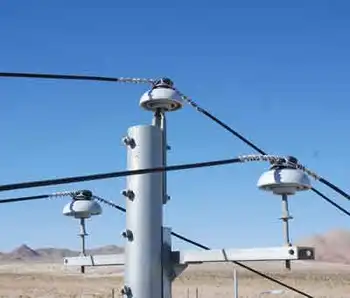TVA natural gas plan draws fire
One promising new source is the gas buried in shale across the region, he said. The fuel would be used to fill in the gaps around an increased supply of nuclear power already in the works.
But environmentalists say the chemical-laced drilling process used to break up the shale deep underground and release the gas could present as many problems as it solves.
Fights have erupted in several parts of the country over the practice, with New York City Mayor Michael Bloomberg calling for a ban on that type of drilling from the city's watershed.
The Tennessee Valley Authority would not drill for the gas itself, but hopes to buy it economically from others "up and down the Appalachian range," Kilgore said.
"Part of the problem with gas is getting it from where it comes out of the ground to where you need it," he said. He said that permitting is "pretty rigorous," so that the environment would be protected.
Many environmentalists have a different view and are dubious of the regulatory oversight.
"I would characterize it as non-existent to lenient," said Sandra Goss, executive director of the Tennessee Citizens for Wilderness Planning.
The drilling process, which is called fracturing or fracking, is exempt from regulation under the federal Clean Drinking Water Act.
Residents in other parts of the country, including Pennsylvania, have reported problems with tainted water they believe is connected to the drilling. But issues could vary from region to region, depending on the type of shale, Goss said.
"There's a lot that's not known," she said. "We have questions about its impact on aquifers. We want to take a reasoned look at it and learn more."
Unlocking the natural gas underground is a complex process, with a well drilled deep into the ground. Between 2,500 and 4,000 feet down, a horizontal line is drilled out into shale, which is made up of stratified rock layers that can be rich in minerals.
When fractured, the right kind of shale releases natural gas. To move the gas out more quickly, those drilling inject foam containing chemicals and sand or other gritty material into the cracked shale. This holds the rock open so natural gas can be retrieved.
Public information is limited about what is in that watery concoction.
In Tennessee, environmental officials have said they did not know, outside of gases, specifically what materials companies might send down wells in the fracturing process. But they say they've never found any materials in a high enough concentration to consider it a problem.
"We're concerned anytime there is the potential for groundwater contamination, and that is why the state requires a sound casing program as part of the well-drilling permitting process to protect groundwater," Tisha Benton-Calabrese, spokeswoman for the Tennessee Department of Environment and Conservation, has said.
A sheathing that encases the well is required, and concrete is placed nearby underground to avoid tainting groundwater, she said.
One complaint environmentalists have is that water testing is not required before the drilling takes place to help compare results afterward to determine whether groundwater has been tainted.
The industry has wanted information about what's in the liquids kept secret for proprietary business reasons. That includes the energy company Halliburton, one of a small group of contractors that does fracturing.
One expert, who believes the process is safe, chides industry officials for not being forthcoming about the chemical cocktails. The secrecy has served to raise public suspicions.
"If history teaches us anything, anytime there's a lack of transparency, there's a problem," said Kenneth Medlock, professor of economics at Rice University and fellow in energy and resource economics at the James A. Baker III Institute for Public Policy.
He also has worked as a consultant for El Paso Energy Corp.
"Let's just be open with it," he said. "There's nothing to hide."
Fracturing and gas drilling in New York State has been drawing a flood of scrutiny in the past year. Last fall, the state issued an 800-page document of proposed rules that drew thousands of comments from the public.
Potentially at risk is New York City's aquifer, a deep, famously pure source of water for the city's more than 8 million residents. Bloomberg has asked for the state to ban drilling in the watershed there because its protection is so essential to life in the city.
The U.S. Environmental Protection Agency also has weighed in, saying the state needs to do more analysis on the impact and potential health effects of drilling.
The Natural Resources Defense Council, which objects to secrecy surrounding the materials used in fracturing, and Earthjustice are among environmental groups critical of the New York proposal.
But proponents of drilling in Tennessee say a comparison to New York's issues shouldn't be made because the geology is different. Releasing natural gas from New York's shale uses a more water-intensive process than what is required for the Chattanooga shale that runs through the Appalachians across East Tennessee, industry officials have said.
Either way, the drilling is done through the water table, which has created concern. Questions have arisen as to whether groundwater contamination would be found after the fact, when it's too late to prevent damage to water supplies.
Medlock at Rice University said that a double casing around the well when drilling can protect water, though nothing is absolutely guaranteed.
"When you think about drilling in the New York watershed, all you need is one casing to fail and you've got all kinds of problems," he said.
Still, that doesn't mean shale drilling, which has been done for decades in Texas and elsewhere, shouldn't proceed, he said. Rather, all possibilities should be considered and the costs to protect health and the environment should be built in to what a company does.
"It's the socially efficient outcome to incorporate all the costs," he said.
In Tennessee, natural gas companies have been pressing both the University of Tennessee and the Tennessee Wildlife Resources Agency to allow drilling on public lands. The interest has intensified as coal loses favor in the face of concerns about global warming and climate change.
When The Tennessean reported on a little-known plan by UT to open 6,800 forested acres to drilling last spring, environmental groups reacted sharply.
They protested to the State Building Commission, which had final approval over the plan. UT officials took the proposal off the table after the public outcry.
Part of the worry was the unknown.
"The real problem is we don't really know what kind of soup they're putting down the hole," said John McFadden, president of the Tennessee Environmental Council.
Related News

Biden Imposes Higher Tariffs on Chinese Electric Cars and Solar Cells
WASHINGTON - In a significant move aimed at bolstering domestic industries and addressing trade imbalances, the Biden administration has announced higher tariffs on Chinese-made electric cars and solar cells. This decision marks a strategic shift in U.S. trade policy, reflecting concerns over competition, intellectual property rights, and national security implications.
Tariffs on Electric Cars
The imposition of tariffs on Chinese electric cars comes amidst growing competition in the global electric vehicle (EV) market. U.S. automakers and policymakers have raised concerns about unfair trade practices, subsidies, and market access barriers faced by American EV manufacturers in China. The tariffs aim to…





